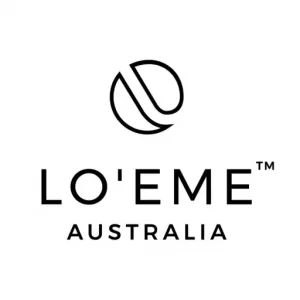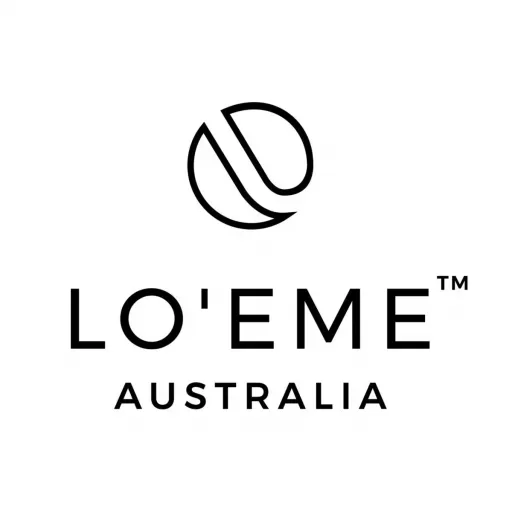No products in the cart.
Lo'eme Australia Blog

26/07/2023
Best Natural Skincare products
Taking care of your skin is an essential part of maintaining a healthy and radiant complexion. With the growing awareness of synthetic ingredients in skincare products, many individuals are turning to natural alternatives to pamper their skin. Natural skincare not only cares for your skin, naturally but they are just as good as their synthetic counterparts.w
However, finding the right products for your specific skin type is crucial to achieving the best results. In this blog post, we’ll explore how to choose the best natural skincare for dry, sensitive, oily, and combination skin types.
Understanding Your Skin Type
Before diving into the world of natural skincare products, it’s essential to identify your skin type. Here’s a brief overview of the three common skin types:
Dry Skin: Dry skin lacks moisture and tends to feel tight and rough. It may have flaky patches, especially in colder climates, dry weather and with age.
Oily Skin: Oily skin is characterized by excessive sebum production, leading to a shiny appearance and a higher likelihood of developing acne and enlarged pores.
Combination Skin: Combination skin is a mix of different skin types, with some areas being oily (usually the T-zone) and other areas being dry or normal.
Normal Skin: Normal skin is neither oily or dry and quite even and clear. It can have the odd blemish or two but is generally kept even by a good skincare routine.
Sensitive skin is not a type but a condition that can be any of the above skin types, it is easily irritated, prone to redness, dryness, and may react to certain ingredients or environmental factors.
.
Read Ingredient Labels
When opting for natural skincare products, always check the ingredient labels. Look for products that contain organic and plant based ingredients, as have been used for thousands of years and less likely to have unknown adverse reactions. Some beneficial ingredients for each skin type include:
Dry Skin: Look for products containing hyaluronic acid, Kakadu Plum, Jojoba oil, avocado oil, and humectants like glycerin, propanediol and pentylene glycol, which provide deep hydration and lock in moisture.
Oily Skin: Choose products with non comedogenic oils, Lemon Myrtle, Canadian Willowherb, and jojoba oil, as it can help balance sebum production without clogging pores.
Combination Skin: Look for products with a balanced mix of ingredients suitable for both dry and oily skin types. Rosehip oil, Apricot oil, and Quandong extract are good options.
Normal Skin: You are lucky and able to use most products but pick products that are not too heavy or too light.
Sensitive Skin: Chamomile, aloe vera, Davidson’s plum, and Wattleseed extract are excellent ingredients for sensitive skin.
Patch Test New Products
Even with natural ingredients, it’s possible for your skin to have individual sensitivities to certain compounds. Before fully incorporating a new product into your skincare routine, conduct a patch test. Apply a small amount of the product on a small area of your skin (like the inside of your elbow) and observe for any adverse reactions over 24-48 hours.
Consider Product Formulations
The formulation of a skincare product matters, too. For example:
Cleansers: For dry and sensitive skin, opt for gentle, creamy cleansers that don’t strip away natural oils. Oily and combination skin may benefit from foaming cleansers that help control excess oil.
Moisturisers: Dry skin requires thicker, richer moisturizers, while oily skin needs lightweight, non greasy formulations. Combination skin types can use different moisturisers for different areas of the face.
Serums: Serums can target specific concerns. Hyaluronic acid serums work well for dry skin, while Rosehip (Niacinamide natural alternative) or White willow bark (Salicylic alternative) serums can benefit oily and acne-prone skin.
Look for Sensitive skin and fragrance free or low fragrance products
To avoid triggering sensitivities, opt for sensitive skin and fragrance free products. Artificial fragrances can be harsh on the skin, particularly for those with sensitive skin, and may cause irritation or allergies.
Sun Protection
Regardless of your skin type, always prioritise sun protection. Look for natural sunscreens with broad-spectrum protection and an SPF of 50. Zinc oxide and titanium dioxide are excellent natural sunscreen ingredients.
Consult with a Dermatologist
Natural skin care products are designed to help moisturise, cleanse and hydrate skin and not to treat specific medical skin conditions. If you have specific skin concerns, consider consulting a dermatologist. They can provide personalised recommendations and advice based on your skin’s needs.
Conclusion
Finding the best natural skincare products for your skin type requires a bit of research and trial and error, but the benefits are well worth the effort. Embrace the journey of discovering the right products that enhance your skin without harmful chemicals. Remember, consistency and patience are key to achieving healthy, glowing skin naturally. So, get ready to pamper yourself with the goodness of nature and unlock your skin’s true potential with Australian made skincare. Happy skincare!
Share:
Share on facebook
Share on twitter
Share on linkedin

Lo'eme Australia
Author
Categories
Recent Posts
26/07/2023
Best Natural Skincare products
10/03/2023
Natural Skincare Routine
Follow Us
Related Posts
18/09/2023
Natural skincare ingredients that are not vegan
Natural skincare is wonderful for your skin but not always…
08/07/2022
How much lip products do we actually consume?
Most of you would have read articles suggesting we consume…
Join our VIP list for 15% off your first order and be in the know for sales, exclusive discounts and more!
Join our VIP list HERE
Useful Links
SKINCARE
VEGAN MAKEUP
Copyright 2024 © Lo’eme Australia All Rights Reserved.





